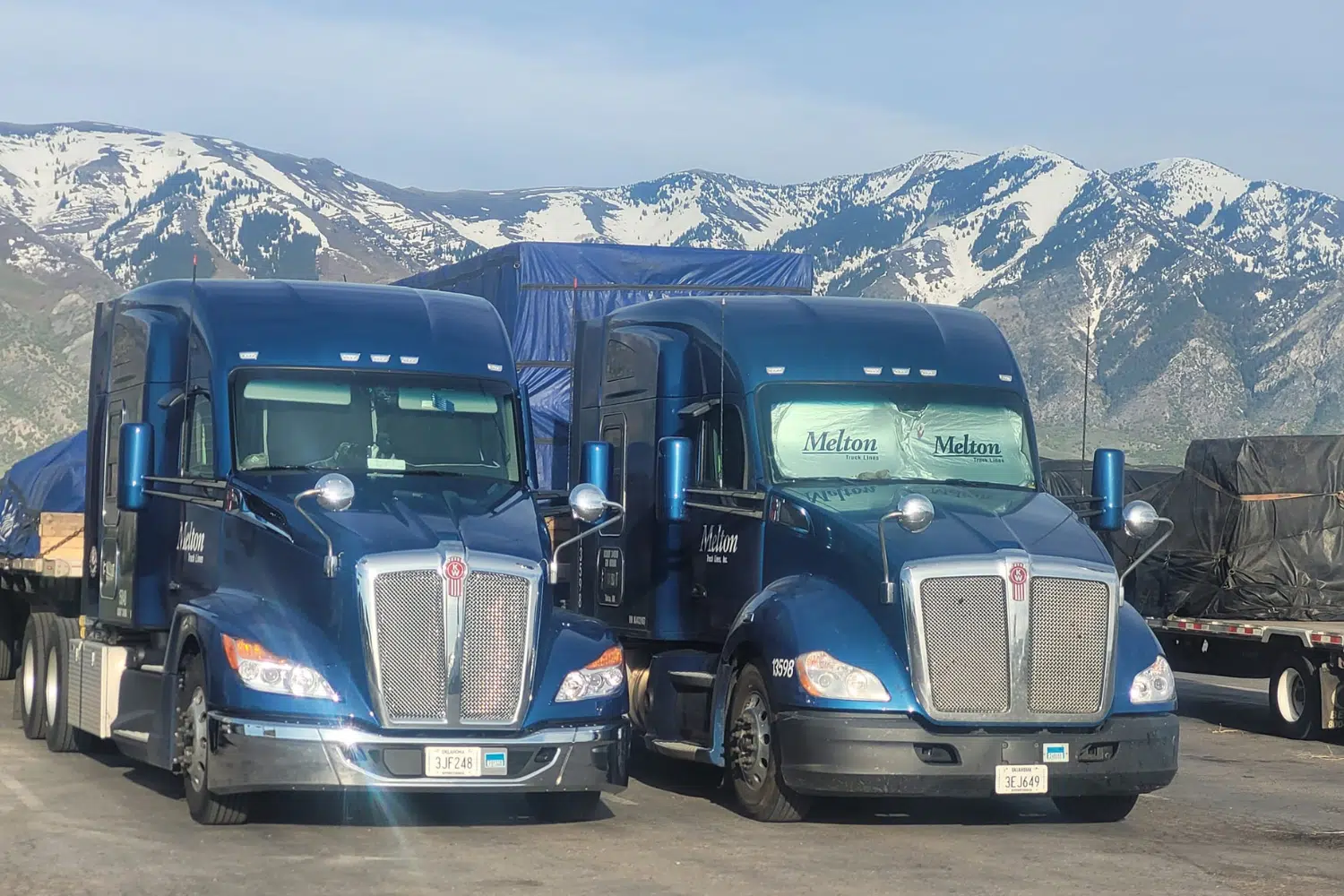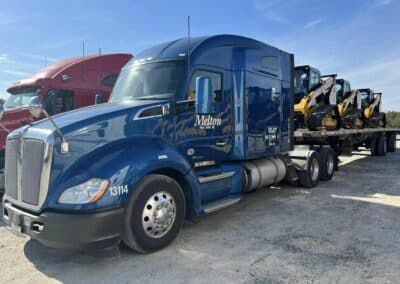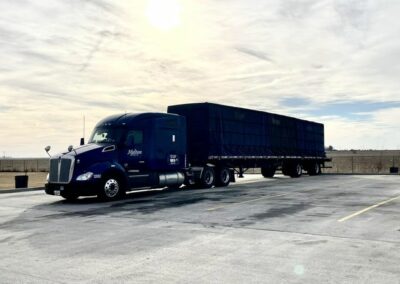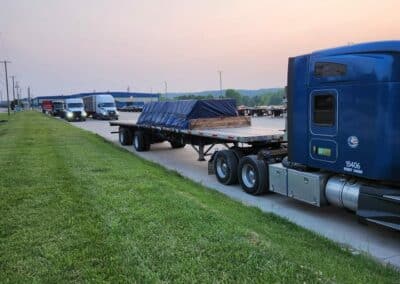
How to Back Up in a Semi Trailer
Backing up is a skill that both new and veteran truck drivers must continually focus and practice on.. Flatbed trucks require skill and training to maneuver, and there are many things to remember when backing a 53’ trailer into a parking space or areas at a shipper. In fact, the highest number of insurance claims in trucking have to do with damage caused by backing. Of course, like any skill, backing can be practiced and mastered. Melton ensures new drivers meet our trucking requirements to maximize the success of our fleet. Here are a few tips to keep in mind as you practice backing up!
Go Slow – Don’t feel like you need to rush when backing up your truck. Trying to do this quickly will usually cause more harm than good, and a few extra minutes isn’t worth the potential damage a backing accident can cause.
Get Out And Look (GOAL) – Get out of your truck and take a look around as much as you need to ensure safe backing. Physically checking your position as often as possible makes it less likely any accidents will occur. Even if it takes more time or makes you seem “inexperienced,” taking the time to check is the best way to prevent any unnecessary accidents.
Blindside Backing – Avoid backing up towards the right side of your vehicle if possible. Backing up this way is significantly harder due to the lack of visibility. If you do have to do this, exiting your vehicle and checking for obstacles is even more important.
Tail Swing – If you’re dealing with tight turns to get into position, be sure to account for the clearance you’ll need for your trailer to swing out in the opposite direction. Many accidents are caused by drivers misjudging the swing of their trailer.
Getting Help – Don’t be afraid to ask for help…if there’s an experienced truck driver around. They can warn you about obstacles in your blind spots, as well as being an extra set of eyes to assess the situation.
Pull Through When Possible – The absolute best way to avoid backing accidents? Don’t back up. If at all possible, avoid backing up when it’s not necessary. If you are required to back up or believe it to be the best course of action, make sure to survey the dock or space you’ll be backing into. If it’s tight, try finding another solution before attempting to back in.
With these tips in mind, you’ll be able to back up your truck safely. Patience is the key to success, as well as lots and lots of practice. If you’re looking to learn more about Melton’s flatbed jobs, you can check out our flatbed driving jobs page here. Learn more about our pre-hire evaluation program here!
Check out some related blog posts!




